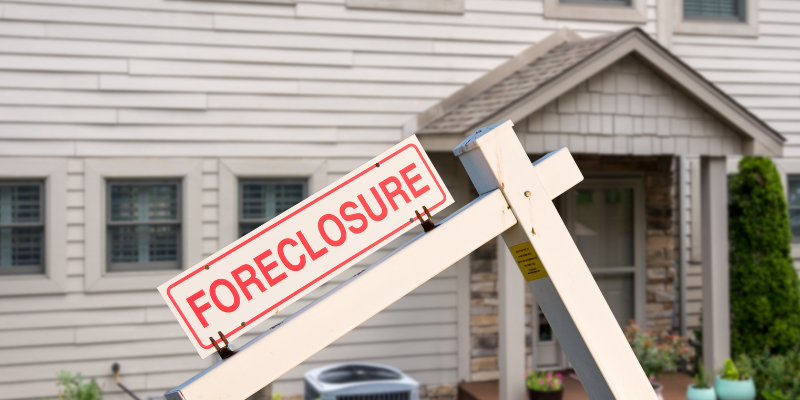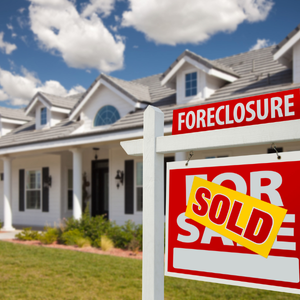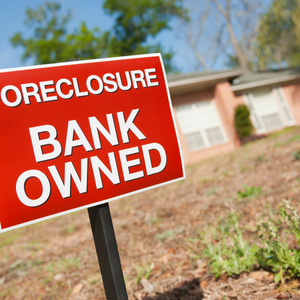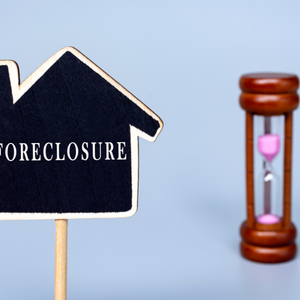
Understanding Foreclosure Processes in North Carolina
Familiarizing oneself with the foreclosure procedure in North Carolina is essential for homeowners wishing to market their property, even while foreclosure is pending. In this jurisdiction, foreclosure actions are, for the most part, pursued through the judicial system.
The sequence commences when the lender initiates a civil action against the borrower for persistent non-payment. The homeowner is then served with a notice of default, a formal communication indicating that the account is delinquent and that the lender may advance toward foreclosure if the deficiency is not rectified.
Homeowners should recognize that the pre-foreclosure interval provides a narrow window for remediation. During this period, they may renegotiate repayment with the lender, pursue a loan modification, consider a short sale, or liquidate the property outright before the auction occurs. The critical timeline is about 90 days from the notice of default, during which the lender may petition the court for authorization to sell the property at public auction.
Expertise from real estate practitioners familiar with distressed assets, such as Helping Home Solutions, is indispensable in this environment. Such specialists can help homeowners comply with North Carolina statutes, navigate court filings, and identify the sale strategy that maximizes the net proceeds, thereby minimizing the ultimate financial and credit repercussions of the foreclosure.
Legal Requirements for Selling a Foreclosed Property
Selling a home in foreclosure in North Carolina requires careful attention to legal protocols in order to achieve a favorable outcome. The initial priority is to familiarize yourself with North Carolina’s foreclosure pathway, which is non-judicial and is ordinarily triggered by a power of sale clause contained in the mortgage or deed of trust.
Sellers are obligated to deliver all required disclosures to prospective purchasers, including known material defects, in accordance with state statutes. Engaging a qualified real estate attorney is advisable; such counsel will clarify the state’s distinctive legal landscape and assist in resolving any emerging issues.
If the sale is to be structured as a short sale—wherein the sale price falls short of the outstanding debt—prior consent from the mortgage lender is generally indispensable. Comprehensive awareness of the tax ramifications, as well as adherence to both federal and state regulations, is also essential and warrants careful consideration.
Thorough comprehension of these legal parameters does more than streamline the sale; it also serves to shield the seller from future liabilities and minimizes the risk of complications that could arise both during the transaction and in subsequent proceedings.
Financial Implications of Selling a Home in Foreclosure

Selling a home in foreclosure in North Carolina carries important financial consequences that homeowners need to grasp in order to manage the situation effectively. When foreclosure looms, prompt action is essential in order to limit loss exposure and safeguard your credit standing.
A pre-foreclosure sale gives the opportunity to satisfy the mortgage debt in full, thereby averting the more severe long-term credit damage that accompanies a completed foreclosure. Nevertheless, homeowners should recognize that a distressed sale may require accepting a purchase price below full market value, a reality driven both by compressed timelines and buyer caution regarding foreclosed properties.
Homeowners must also factor in expenses for property marketing, any necessary repairs that enhance marketability, and, where employed, real estate broker commissions. Furthermore, it is critical to familiarize oneself with North Carolina statutes governing foreclosure procedures, particularly any statutes that address redemption timelines, as these may shape both the sale timetable and decision-making strategy.
A clear grasp of these financial determinants is essential for making prudent choices during a period of considerable pressure.
Impact of Mortgage Balance on Selling Price During Foreclosure
When selling a foreclosed property in North Carolina, the outstanding mortgage balance is a decisive factor in setting the listing price. Clarity regarding the amount due informs a realistic and appealing price point that can generate buyer interest without undervaluing the asset.
If the mortgage balance is substantial, the homeowner’s leeway is constrained because the sale must cover the loan amount plus foreclosure-related costs, such as attorney fees and lien assessments. Homeowners should engage real estate practitioners with a proven track record in foreclosure transactions; these specialists can benchmark the property’s market value against the encumbered debt and advise on a pricing strategy that is both competitive and compliant with lender stipulations.
This methodical attitude enhances the seller’s bargaining position and ensures that any accepted offer satisfies the mortgage holder. Familiarity with prevailing market dynamics and recent sales of comparable distressed properties further refines the pricing approach, offering a strategy that acknowledges the specific hurdles faced by foreclosed homes in North Carolina.
Steps to Prepare Your Home for Sale During Foreclosure
To position your North Carolina home optimally for sale while under foreclosure, you will need both tactical execution and a firm grasp of regional housing dynamics. Start with a comprehensive deep cleaning and a judicious decluttering that reveals the property’s core strengths and invites interest.
Prioritize critical repairs, specifically the roof, plumbing, and electrical systems, to certify that the home meets buyer expectations and meets safety codes. Elevate curb appeal: a fresh coat of exterior paint, strategic landscaping, and well-maintained walkways create a welcoming first impression.
Professional staging, using a neutral palette and minimal furnishings, permits prospective buyers to imagine their own lives in the space. Acquaint yourself with North Carolina’s foreclosure statutes; collaborating with an agent who specializes in short sales will ease compliance and expedite decision-making, while also giving you the option to sell your home for cash in Farmville or nearby cities.
Set a price that reflects a rigorous comparative market analysis; an appropriately valued home attracts earnest offers, a necessity under time constraints. Maintain an open line of dialogue with your lender regarding the decision to sell; transparency may yield leniency that can simplify the negotiation landscape.
Strategies for Pricing a House in Foreclosure
Selling a home in foreclosure in North Carolina mandates the careful calibration of pricing strategies to draw prospective buyers and achieve a timely and effective transaction. The preliminary measure is a thorough examination of the prevailing local market; a detailed review of recently closed comparable sales reveals the pricing spectrum within which the subject property should be positioned.
Foreclosure sales present distinctive hurdles—notably the property’s physical condition and any deferred maintenance—which can materially affect perceived market value. An agent who specializes in distressed properties can furnish critical insights into crafting a price point that balances the compressed timelines typical of foreclosure proceedings with broader market dynamics.
In practice, an initial list price set marginally below prevailing market levels is often advisable, as it can attract value-conscious buyers and stimulate competitive bidding that accelerates the closing process. Equally, the seller must remain vigilant and willing to recalibrate the price in response to market signals and buyer reactions, thereby safeguarding the transaction from unnecessary delays, while also considering opportunities to sell your home for cash in Falkland or nearby cities.
How to Market a Foreclosed Home Effectively
Marketing a foreclosed property in North Carolina requires a focused approach that communicates both present value and future potential, inviting serious offers. Start with curb appeal: tidy the lawn, clean walkways, and paint the front door to convey care. Small repairs—fresh paint, sealed leaks, and clean gutters—speak volumes. Hire a local staging professional to arrange furnishings in a way that highlights each room’s best features without alienating buyers with unrealistic upgrades.
Once the home is camera-ready, engage a professional photographer who also offers 3D walk-throughs; most buyers first explore listings on mobile devices, and great visuals create an emotional connection. List the property on the MLS to ensure agent access, and cross-promote via Facebook and Instagram: colorful images and drone shots of the surrounding community can be effective. Consider pricing slightly below recent comparable sales, which generates attention, but also spotlight aspects that differentiate the property—like a large lot, a planning school district, or neighborhood upgrades.
Align with a North Carolina agent who specializes in foreclosure sales; their understanding of local judicial processes, discounted pricing strategies, and investor networks will shorten the days-on-market. By combining visible, thoughtful presentation with expert guidance, the property will successfully translate its circumstances into opportunity.
Navigating the Paperwork: Essential Documents for Selling a Foreclosed Home

Conveying a foreclosed property in North Carolina mandates a methodical grasp of crucial documentation. Begin by securing the notice of default, a document that confirms the lender’s notice of acceleration and sets the foreclosure timetable.
The deed, which proves title and itemizes any superior liens, is indispensable. Request a payoff statement from the mortgage servicer, since it precisely quantifies the loan balance and itemizes any fees permissible at closing.
A title search report is equally important, exposing any pre-existing easements, judgments, or tax liens that could impinge upon the transaction. In parallel, a completed property disclosure report—truthfully identifying material defects the seller knows—reinforces transparency required by statute.
Compliance with North Carolina’s statutory mandates regarding disclosure and conditional sales is non-negotiable. To preempt procedural delays and assure completeness, consult a real estate attorney or licensed broker skilled in foreclosure matters; their expertise will affect the timely assembly and submission of the essential file.
Negotiating with Buyers: Tips for Sellers in Foreclosure
Selling property under foreclosure in North Carolina mandates that owners adopt a methodical buyer engagement strategy to secure the best possible financial result. An early appraisal of both neighborhood-specific pricing and overall market indicators allows for the setting of a list price that satisfies the foreclosure timetable while remaining compelling within the wider marketplace.
Explicitly revealing the foreclosure status not only conforms to ethical practice but also fortifies trust among informed buyers, most of whom verify asset history prior to any offer. Collaborating with a broker experienced in distressed property transactions further enriches the pricing framework, identifies the subset of buyers most likely to act, and fine-tunes negotiation strategies to the prevailing market psychology.
Timely acknowledgement of any offer received is critical, especially when courting cash buyers who anticipate shorter closing periods. The owner should adopt a transactional mindset that encourages constructive negotiation; strategies such as covering buyer closing expenses or including certain installed appliances can shift buyer sentiment toward a commitment.
Ongoing, candid communication combined with a sincere willingness to recalibrate terms creates a constructive climate, allowing the unusual urgency of the foreclosure process to yield a rapid and satisfactory closing for all parties.
How to Handle Multiple Offers on a House Facing Foreclosure
Successfully managing several offers when your North Carolina home is in foreclosure demands calculated tactics and informed judgment. Begin by enlisting a real estate agent who has a track record in distressed properties; they can lay out the strengths and weaknesses of each proposal.
Focus first on offers that at least match the total mortgage arrears; this minimizes the risk of a deficiency judgment and stabilizes your overall financial picture. Examine each proposal for contingencies—financing schedules, inspection windows, and closing dates—because they influence the speed and certainty with which a deal can be finalized.
Ensure that every interested buyer is informed in real time about the presence of competing offers, while frankly stating the foreclosure situation. Document the communication to establish transparency. For added security, seek counsel from a real estate attorney who is well-versed in North Carolina foreclosure law; they can guide you through statutory requirements and safeguard your negotiating position.
By methodically orchestrating the offers you receive, you enhance the probability of executing a closing before the property is sold at auction.
Common Mistakes to Avoid When Selling During Foreclosure
When selling a home in foreclosure in North Carolina, avoiding typical pitfalls is essential for preserving value and effecting a timely sale. One critical mistake is underestimating the legal framework and timelines that govern foreclosure in the state. Sellers must familiarize themselves with North Carolina’s specific statutory requirements regarding notices, advertisement schedules, and auction timelines, since any misjudgment can jeopardize the opportunity for a consensual sale prior to the auction.
A second, intertwined mistake is the failure to keep the lender apprised of the seller’s intent and to engage with any loss mitigation options. Open, documented communication can occasionally induce a lender to postpone the foreclosure clock to accommodate a short sale, provided that the proposed sale price is substantiated and that the seller cooperates.
Additionally, pricing the property too ambitiously can alienate buyers, especially when they know that the foreclosure auction can set a lower public price. An overpriced home may linger on the market, resulting in a lower loss-share for the seller. Moreover, insufficient marketing reach compounds the problem; narrow advertising efforts may fail to attract a broad pool of buyers, undercutting the critical time window for closing a sale that preserves the seller’s net recovery.
Concealing existing defects within the property can dissuade prospective purchasers and create the possibility of litigation, which complicates an already precarious scenario. Home sellers are advised to engage real estate agents who specialize in foreclosure transactions and to consult attorneys well-versed in North Carolina statutory and regulatory requirements. This dual consultation strategy enables homeowners to navigate the process transparently and to enhance the likelihood of an expedient and favorable sale, thus mitigating the negative consequences of financial distress.
Protecting Your Credit Score While Selling a Home in Distress
When facing a foreclosure sale in North Carolina, it is vital to minimize the potential impact on your credit score. Early and direct engagement with your mortgage lender, coupled with a thorough assessment of all viable alternatives, is the most effective approach to preserving your credit profile.
A court-authorized short sale may be an optimal route; this solution permits a sale price that falls short of the outstanding mortgage balance, contingent upon the lender’s consent. By securing that endorsement beforehand, you can limit the credit-reporting consequences typically associated with a foreclosure.
Ongoing dialogue with your lender is equally important; this practice can avert the accrual of late-payment notations that accelerate credit-score declines. Equally, enlisting a real estate professional who specializes in foreclosure transactions can yield tactical negotiations with the lender and potential purchasers, aiming for a release that is least damaging to your credit file.
Finally, it is prudent to keep all other financial obligations current—student loans, auto payments, and credit cards, for instance—thereby cushioning your overall credit score against the pressures of distressed property disposition. When approached systematically, these actions can help you exit the foreclosure process with a credit report that is relatively intact.
Tax Considerations When Selling a House Undergoing Foreclosure

When selling a home that is in foreclosure in North Carolina, the tax consequences deserve careful attention. The Internal Revenue Service treats any canceled mortgage debt as income, a phenomenon called cancellation of debt (COD) income, and this income is usually taxable.
Homeowners should also consider possible capital gains taxes if the sale yields any profit. Yet, the Mortgage Forgiveness Debt Relief Act may provide relief under certain qualifying conditions, thus reducing or even eliminating the tax burden associated with forgiven debt.
Given the intersection of state tax rules and federal regulations, individuals facing foreclosure should seek guidance from a tax advisor who is knowledgeable about both North Carolina statutes and Internal Revenue Service guidelines. Such counsel will help in ensuring compliance with disclosure requirements and identifying deductions or exclusions that may lessen tax liability. Mastery of these tax issues will therefore empower sellers to navigate the foreclosure sale with greater financial security and clarity.
Post-sale Steps: What to Do After Successfully Selling Your House
Once the foreclosure sale of your North Carolina home is complete, several key actions must be taken to facilitate a seamless transition. First, verify that every sale-related financial duty—closing costs and any lingering mortgage debts—has been satisfied in full.
Next, acquire official documentation that confirms the removal of any liens against the property. This record is vital to avert potential legal entanglements in the future. Inform utility companies and any service providers of the ownership transfer so they can migrate or cease services as appropriate.
Update your address with the U.S. Postal Service, financial institutions, and any other relevant organizations that require your current contact information. If you worked with a real estate agent or legal counsel during the foreclosure process, confirm that their fees have been fully compensated.
Keep duplicates of all sale-related paperwork for your personal files, as these may be necessary for tax reporting or subsequent inquiries. If you plan to buy another property in North Carolina or in other jurisdictions, carefully review your credit report and overall financial standing to position yourself for future real estate opportunities.
Following these actions upon the sale of your foreclosed property will allow you to transition confidently to the next chapter of your life while guaranteeing that every detail of the transaction is resolved thoroughly.
Can You Sell a House While It’s in Foreclosure?
Yes, you can sell a house while it’s in foreclosure in North Carolina, and doing so can be a beneficial strategy to avoid the negative consequences of foreclosure on your credit. When selling a home in foreclosure, it is crucial to act quickly and efficiently.
Understanding the North Carolina foreclosure process is essential; typically, this involves pre-foreclosure stages where homeowners have the opportunity to sell their property before the auction date. To successfully sell your home under these circumstances, consider working with a real estate agent experienced in distressed property sales.
They can help market your home effectively, negotiate with potential buyers, and liaise with your lender to obtain necessary approvals. Pricing your home competitively is also key to attracting buyers swiftly.
Additionally, being transparent about the home’s condition and any outstanding debts associated with it will expedite the sale process. By successfully navigating these steps, you can sell your home even while it’s in foreclosure and potentially preserve some equity while minimizing damage to your financial standing.
Need to sell your home in foreclosure? Helping Home Solutions makes the process quick and stress-free by offering fair cash offers, covering all the details, and helping you avoid costly repairs or delays. Whether you’re facing financial challenges or simply want a hassle-free sale, we’re here to help. Contact us today at (252) 541-7149 for a no-obligation cash offer and take control of your foreclosure sale with confidence.
Helpful North Carolina Blog Articles
- Guide To Selling Your Home By Owner In North Carolina
- Understanding North Carolina Inheritance Laws
- Sell Your Home In Foreclosure In North Carolina
- Selling A House With Unpermitted Work In North Carolina
- Closing Costs Without A Realtor In North Carolina
- Mastering Contingencies In North Carolina Real Estate Sales
- Selling A Hoarder House In North Carolina’s Real Estate Market
- Understanding Squatters Rights In North Carolina
- How To Successfully Sell Your House With Tenants In North Carolina

| FORECLOSING | MORTGAGE FORECLOSURE | DEBTOR | MORTGAGE LENDERS | ECOURTS | BANK |
| REAL PROPERTY | LAWYER | TRUST | SUPERIOR COURT | HOMEBUYERS | DEEDS OF TRUST |
| DEED OF TRUST | TAX ADMINISTRATION | TAXES | CIVIL ACTION | CIVIL LAWSUIT | CIVIL CASES |
| DEFICIENCY JUDGMENTS | SHORT SELL | INFORMATION | STATUTE | JUDGMENT | PRINCIPAL |
| BANKRUPTCY | WAKE COUNTY | RALEIGH | BENNINGTON DR. RALEIGH | LEGAL TITLE | EQUITABLE TITLE |
| JUDGE | CHAPTER 13 BANKRUPTCY | CHAPTER 13 | TAX LIEN | PROMISSORY NOTE | MORTGAGEE |
| MORTGAGOR | FAIR MARKET VALUE | MORTGAGE SERVICING | LOSS MITIGATION | EVIDENCE | |
| CONSENT | COMPANY | BIDDER | PROPERTY TAXES | PROPERTY TAX | CLERK OF SUPERIOR COURT |
| CLERK OF COURTS | ASSET | SHERIFF | FAILURE | COURTHOUSE | CONTRACTUAL RIGHT |
| CONTINUANCES | CHAPTER 7 BANKRUPTCY | IN A FORECLOSURE | DEED OF TRUST | STOP THE FORECLOSURE | TO AVOID FORECLOSURE |
| FORECLOSURE SALE IS | OR DEED OF TRUST | THE FORECLOSURE SALE IS |
